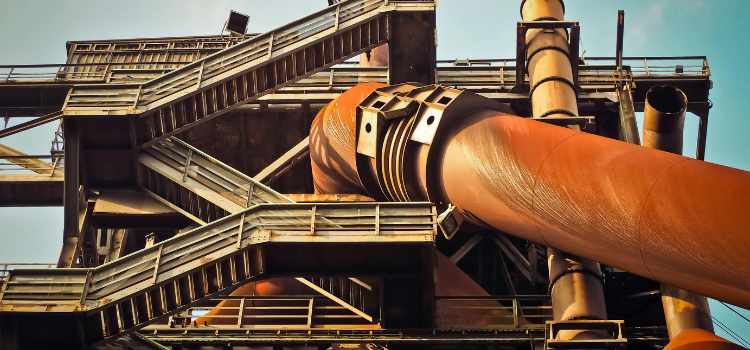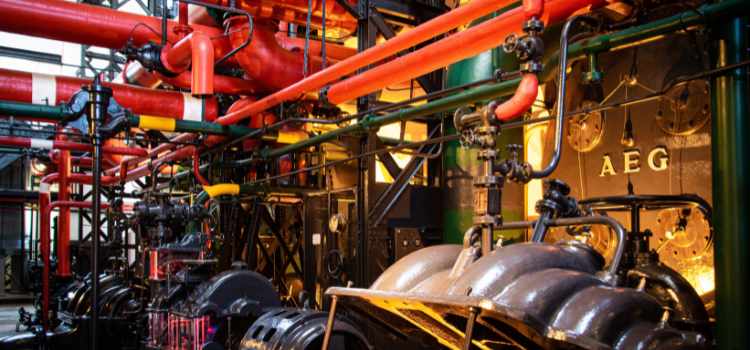As an Amazon Associate, I earn from qualifying purchases.

Know about geothermal vs. air source heat pump. Choosing between a geothermal heat pump and an air-source heat pump can be challenging. Both options have pros and cons. Understanding the differences helps in making informed decisions for your home. Explore heat pump types, benefits, and find your ideal choice for heating and cooling. This blog simplifies the decision-making process. Looking for energy efficiency, cost-effectiveness, or environmental impact? We’ll provide the information for your informed decision.
Geothermal Heat Pump: How It Works and Its Benefits-geothermal vs. air source heat pump

Geothermal heat pumps use the earth’s constant temperature to heat and cool your home. They are more expensive to install but incredibly energy efficient and can save you money on your heating and cooling bills in the long run. Geothermal heat pumps have a longer lifespan and require less maintenance than air-source heat pumps. They are also environmentally friendly, using renewable energy from the earth’s core. However, geothermal heat pumps require much space for installation and may only be feasible for some homes.
Air Source Heat Pump: How It Works and Its Benefits-geothermal vs. air source heat pump

Air source heat pumps extract heat from the outside air and transfer it into your home to provide heating and cooling. They are more affordable to install than geothermal heat pumps and are suitable for a broader range of homes. While they are less energy efficient than geothermal heat pumps, they can save you money on heating and cooling bills compared to traditional HVAC systems. Air source heat pumps are also easier to install and require less space, making them a more practical option for many homeowners. However, they may not be as environmentally friendly as geothermal heat pumps, as they rely on the electricity grid for power. Understanding the differences between geothermal and air-source heat pumps can help you decide on your home’s heating and cooling needs. Each option has benefits and considerations, so weighing them carefully is essential.
Cost Comparison: Installation and Operating Costs-geothermal vs. air source heat pump

Geothermal heat pumps use the natural heat from the earth to provide heating and cooling for your home. They are highly energy efficient and can save you money on energy bills in the long run. However, they require a large amount of space for installation, and the initial cost can be high, making them only feasible for some homes. On the other hand, air source heat pumps work by extracting heat from the outside air and transferring it into your home. They are more affordable to install and are suitable for a broader range of homes. While they may not be as energy efficient as geothermal heat pumps, they can save you money on heating and cooling bills compared to traditional HVAC systems.
Additionally, air-source heat pumps are easier to install and require less space, making them a more practical option for many homeowners. However, they may not be as environmentally friendly as geothermal heat pumps, as they rely on the electricity grid for power. It’s crucial to weigh each option’s benefits and considerations before deciding on your home’s heating and cooling needs.
Energy Efficiency: Which Option is More Energy Efficient?

Both geothermal and air-source heat pumps are highly energy-efficient options for heating and cooling your home. Geothermal heat pumps, however, are known for being the most energy-efficient option. They use the earth’s stable temperature to heat and cool your home, which can result in significant energy savings over time. On the other hand, air source heat pumps work by extracting heat from the outside air and transferring it into your home. While they may not be as energy efficient as geothermal heat pumps, they can save you money on heating and cooling bills compared to traditional HVAC systems. It’s essential to consider the long-term energy savings of both options and weigh them against the initial cost of installation.
Installation and Space Requirements: Which Option is More Practical?
Geothermal heat pumps require a large amount of space for installation, typically needing a substantial area for the ground loops to be buried. The initial installation cost can also be high, making them only feasible for some homes. On the other hand, air-source heat pumps are more affordable and suitable for a broader range of homes. They require less space and are easier to install, making them a more practical option for many homeowners. It’s essential to consider each option’s space and cost requirements when deciding which is more advantageous for your home.
Environmental Considerations: Which Option is More Environmentally Friendly?
Geothermal heat pumps are known for being environmentally friendly. They rely on the stable temperature of the earth to heat and cool your home without producing any greenhouse gas emissions. On the other hand, air-source heat pumps rely on the electricity grid for power, which may be less environmentally friendly. It’s essential to consider the environmental impact of each option and how they align with your sustainability goals.
When choosing between geothermal and air-source heat pumps, it’s essential to consider each option’s energy efficiency, installation and space requirements, and environmental considerations. It’s also necessary to consult a professional to determine which option best fits your home’s heating and cooling needs.
Environmental Impact: Comparing the Environmental Benefits-geothermal vs. air source heat pump
Geothermal and air-source heat pumps are essential when deciding which option is best for your home. Geothermal heat pumps are known for being environmentally friendly, as they rely on the earth’s stable temperature to heat and cool your home without producing any greenhouse gas emissions. This makes them a sustainable and eco-friendly option for heating and cooling.
On the other hand, air-source heat pumps rely on the electricity grid for power, which may be less environmentally friendly. While they are still more environmentally friendly than traditional heating and cooling systems, they contribute to electricity consumption and potential greenhouse gas emissions from the electricity generation process. It’s essential to consider the environmental impact of each option and how they align with your sustainability goals. Ultimately, when choosing between geothermal and air-source heat pumps, it’s essential to weigh the environmental benefits of each option and select the one that best fits your sustainability objectives. Consulting with a professional can also help you make an informed decision that aligns with your environmental values.
Suitability: Which Option is Best for Different Climates and Locations
Compare geothermal and air-source heat pumps. Consider environmental impact and suitability for diverse climates and locations. Geothermal heat pumps harness Earth’s stable temperature, providing eco-friendly heating and cooling. They produce no greenhouse gas emissions. Air-source heat pumps rely on the electricity grid, potentially less environmentally friendly.
Geothermal heat pumps exhibit consistent performance across diverse climates. They’re notably efficient, especially in extreme weather conditions. They are well-suited for areas with stable temperatures and have a longer lifespan than air-source heat pumps. Air source heat pumps, on the other hand, can be a more practical option in areas with milder climates and may be easier to install in existing homes. In the end, consult a professional to find the option that suits your home’s heating and cooling needs best. Make sure it aligns with your specific requirements for an informed decision. They can help you weigh each option’s environmental benefits and suitability and make an informed decision that aligns with your sustainability goals and climate considerations.
Maintenance and Longevity: Comparing the Long-Term Costs and Maintenance Requirements
Geothermal heat pumps generally have lower long-term costs and maintenance requirements than air-source heat pumps. This is because they have a longer lifespan and are less exposed to the elements, requiring less maintenance over time. Geothermal heat pumps can last up to 25 years, while air-source heat pumps typically have a lifespan of 10-15 years. Additionally, geothermal systems have fewer moving parts, reducing the risk of breakdowns and the need for frequent repairs. This can result in lower long-term costs and less hassle for homeowners. However, both heat pump types require regular maintenance for optimal performance. It’s crucial to consider ongoing maintenance costs when choosing the best option for your home. Consulting a professional aids in evaluating long-term costs and maintenance, ensuring an informed decision. Align choices with budget and preferences.
Conclusion: Which Option is Best for Your Home?

Choosing between geothermal and air-source heat pumps depends on factors like home size, location, and heating needs. Tailor your decision accordingly.Geothermal heat pumps excel in energy efficiency and boast lower long-term costs, with increased maintenance requirements. However, their upfront installation cost is higher. Air source heat pumps are more affordable upfront but may have higher long-term costs and maintenance requirements. It’s essential to consult a professional to determine which option best fits your specific home and heating and cooling needs. Explore each option’s environmental benefits and suitability. Make an informed decision aligning with your sustainability goals and climate considerations. Both options have their benefits and drawbacks, so it’s essential to consider all factors before deciding.
As an Amazon Associate, I earn from qualifying purchases.
Leave a Reply